You are here
New Releases
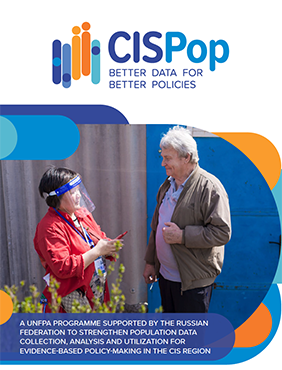
CISPop: Better Data for Better Policies
A brochure on CISPop: Better Data for Better Policies, a UNFPA programme supported by the Russian Federation to strengthen population data collection, analysis and utilization for evidence-based policy-making in the CIS region.
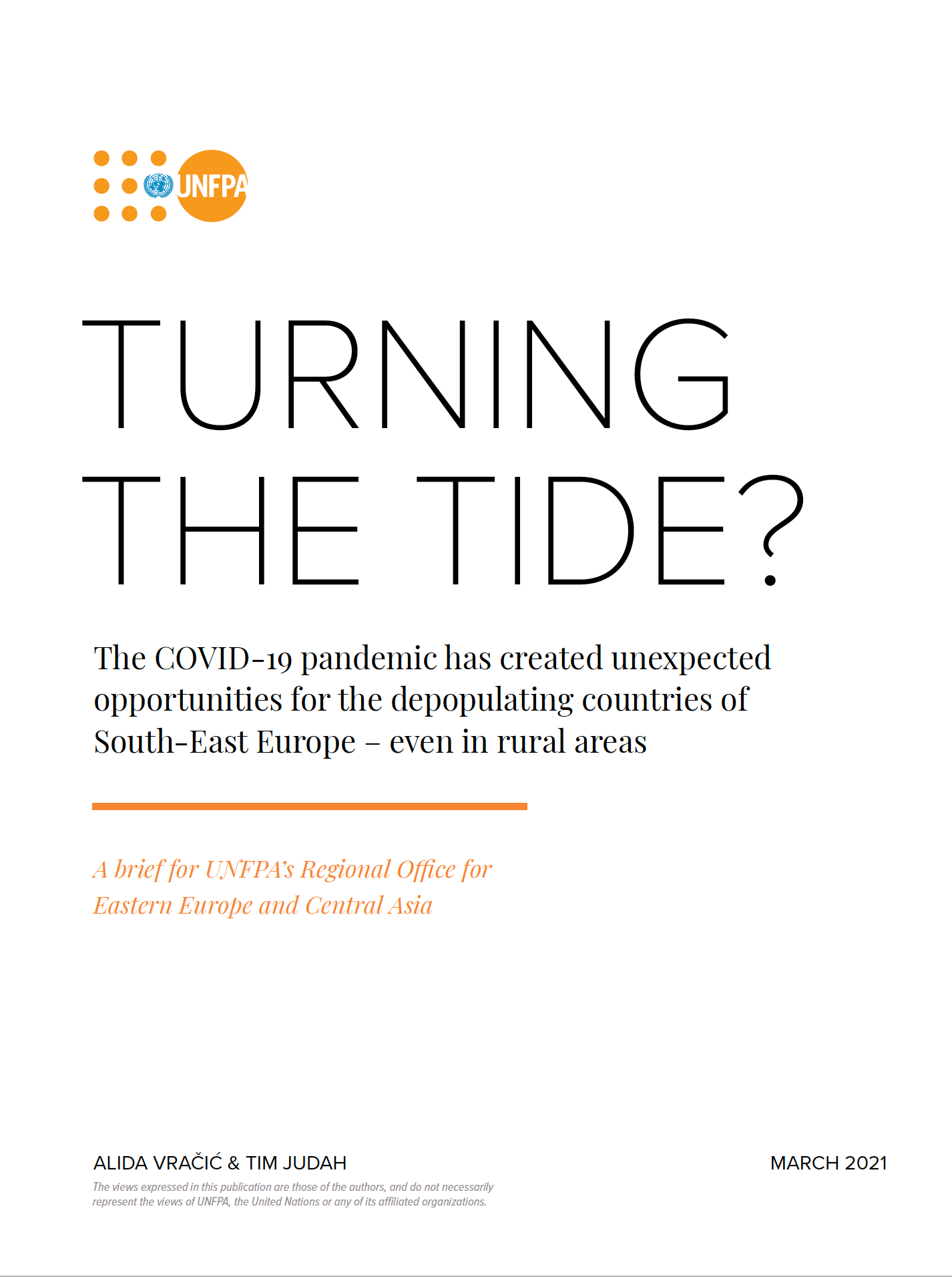
Turning the Tide?
A brief for UNFPA’s Regional Office for Eastern Europe and Central Asia, by Alida Vračić & Tim Judah.
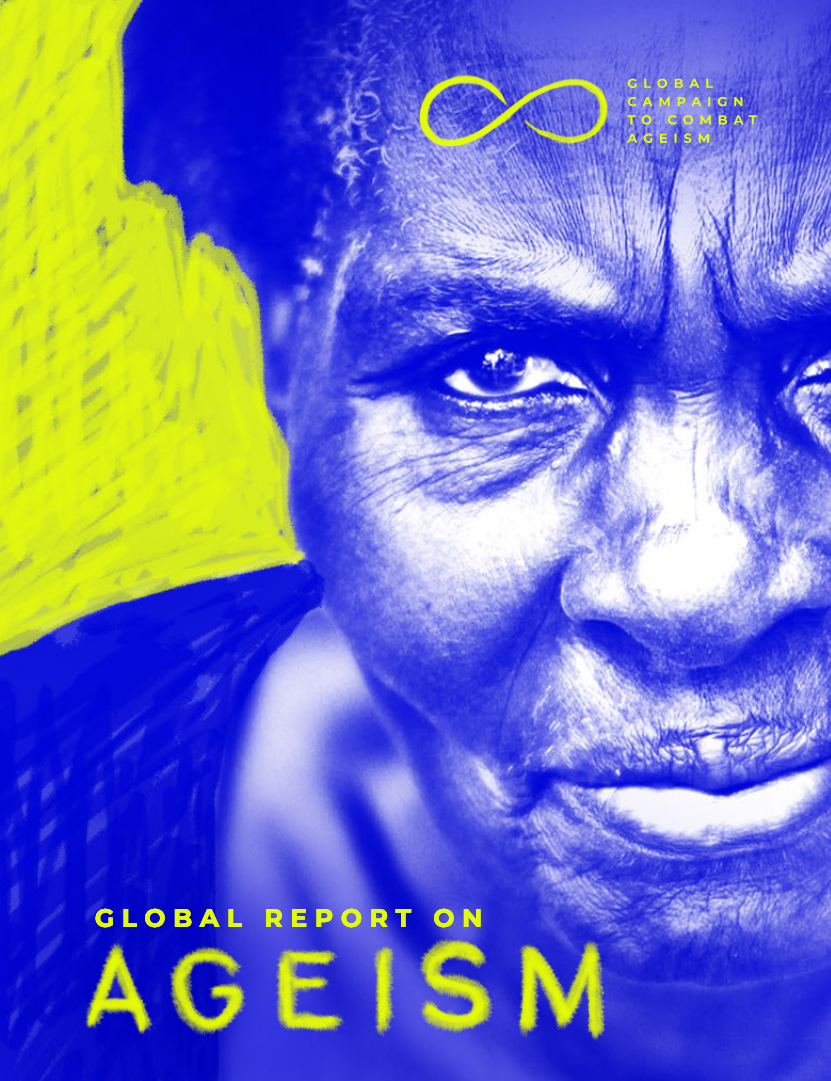
Global report on ageism
The Global report on ageism outlines a framework for action to reduce ageism including specific recommendations for different actors (e.g. government, UN agencies, civil society organizations, private sector). It brings together the best available evidence on the nature and magnitude of ageism, its determinants and its impact. It outlines what strategies work to prevent and counter ageism, identifies gaps and proposes future lines of research to improve our understanding of ageism.
This report is directed at policy-makers, practitioners, researchers, development agencies and members of the private sector and civil society. After defining the nature of ageism, this report summarizes the best evidence about the scale, the impacts and the determinants of ageism and the most effective strategies to reduce it. It concludes with three recommendations for action, informed by the evidence, to create a world for all ages.
The report was developed by WHO, the Office of the High Commissioner for Human Rights, the United Nations Department of Economic and Social Affairs, and UNFPA, the United Nations Population Fund.
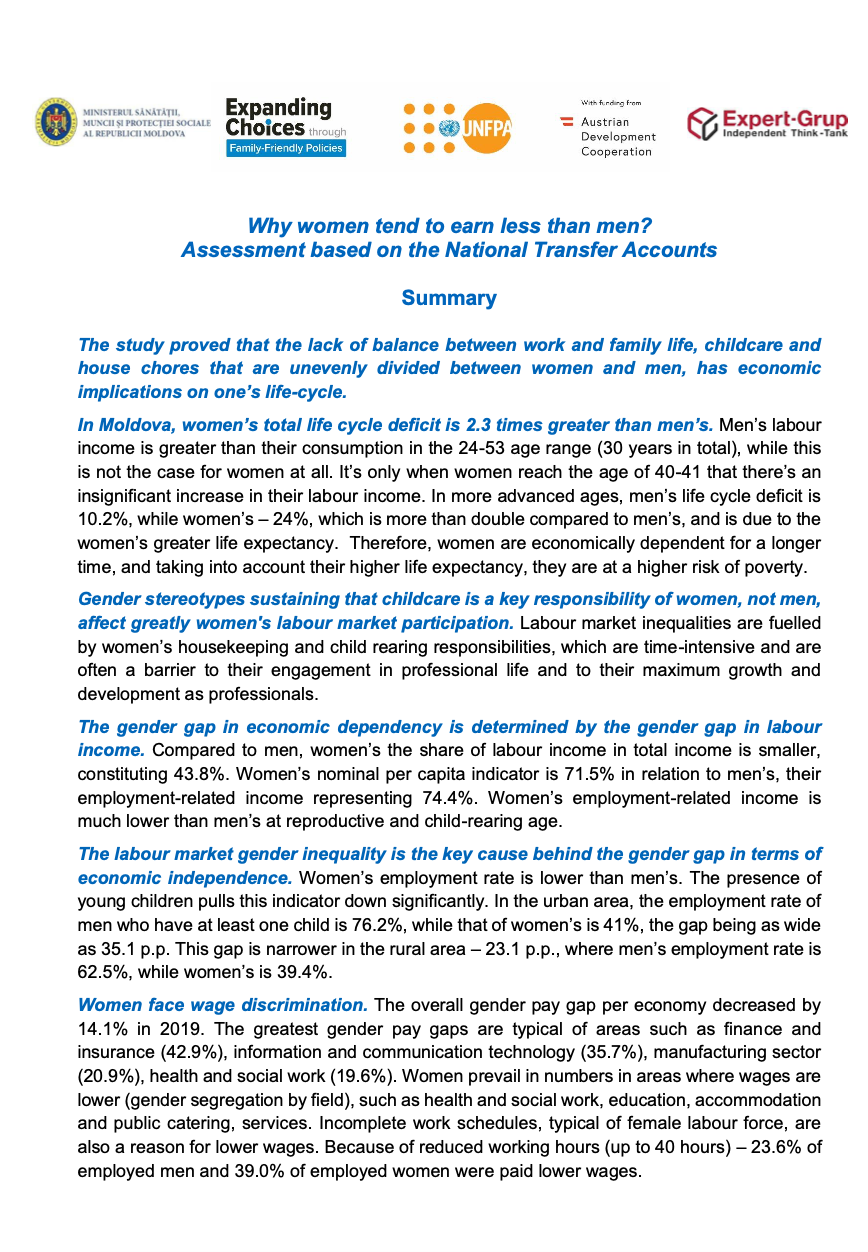
Why women tend to earn less than men: Assessment based on the National Transfer Accounts
As part of the Expanding Choices project, UNFPA jointly with its implementing partner - Expert-Grup, developed an analysis on gender disparities that is based on the economic life cycle deficit in Moldova. Specifically, the study is using the National Transfer Accounts to better understand the economic impact of income and expenditures of women and men throughout their life and what role the work-life balance and family friendly policies are playing in this regard. This study provides economic evidence that underlines the importance of implementing such policies for reducing gender pay gap and overall gender disparities in Moldova.
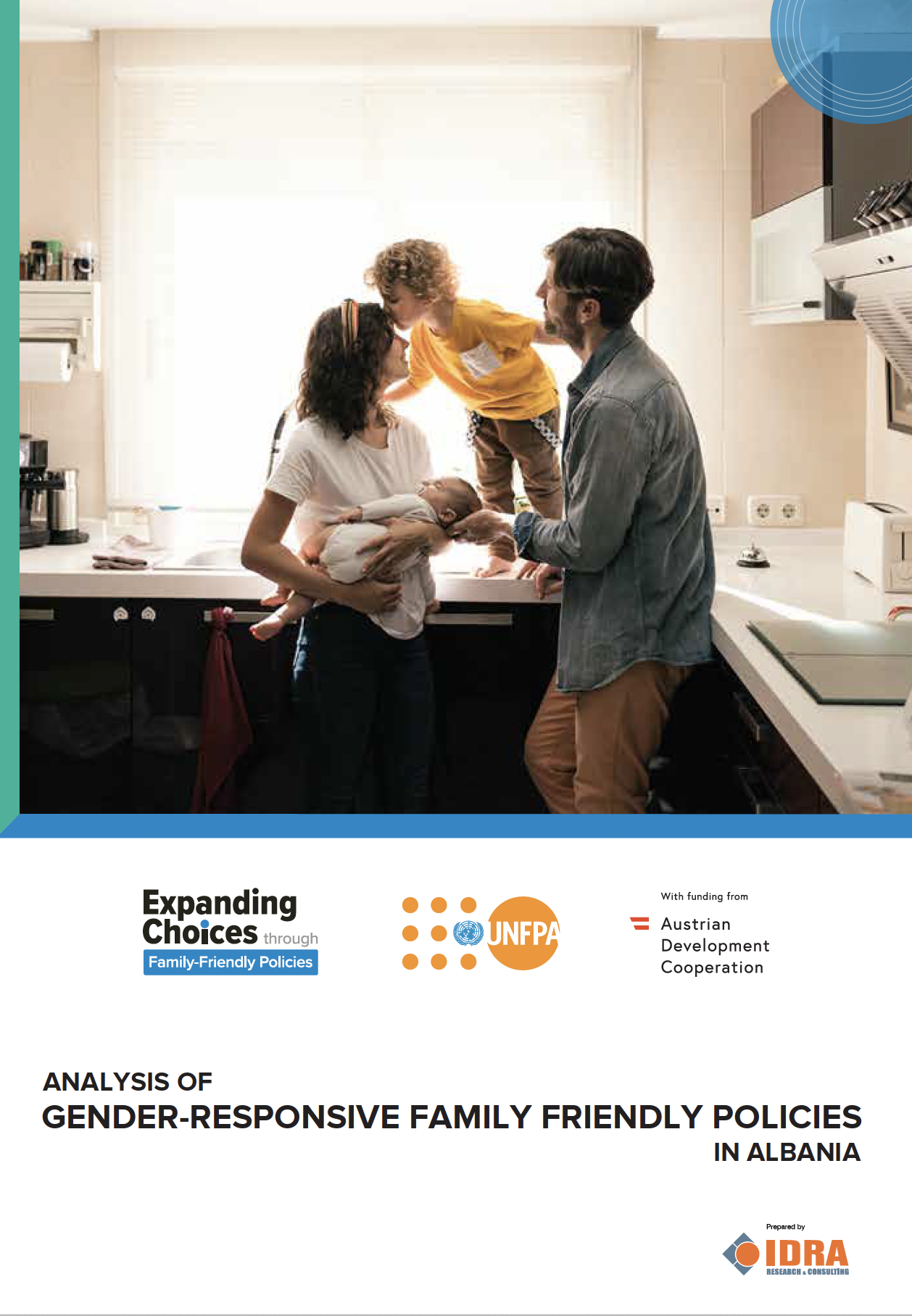
Factsheet: Current gender equality situation in Albania
The factsheet provides an overview of gender equality and women's empowerment outcome in Albania. The evidence and data shows what could be improved through gender-responsive family policies at national level and in the workplace.
These findings come from the "Analysis of Gender Responsive Family Friendly Policies in Albania" done as part of the regional project “Expanding Choices: Gender Responsive Family Policies for the Private Sector in the Western Balkans and Moldova” implemented by UNFPA and supported by the Austrian Development Cooperation. The analysis provides an overview of the current legal, economic and social context for gender responsive family friendly policies in Albania. It also identifies best practices from other countries in the region and provide recommendations that will help to create an enabling environment and expanding choices for women to fulfill their career and family and fertility aspirations.
The “Expanding Choices: Gender Responsive Family Policies for the Private Sector in the Western Balkans and Moldova” regional project, implemented by UNFPA and supported by the Austrian Development Cooperation, aims to expand choices for women so that they can fulfill their career, family and fertility aspirations. The project works on two specific outcomes: ensuring that women, men and children benefit from gender-responsive family policies and initiatives that are offered by private sector companies and ensuring that women, men, and children benefit from national gender-responsive family policies that are promoted by governments.
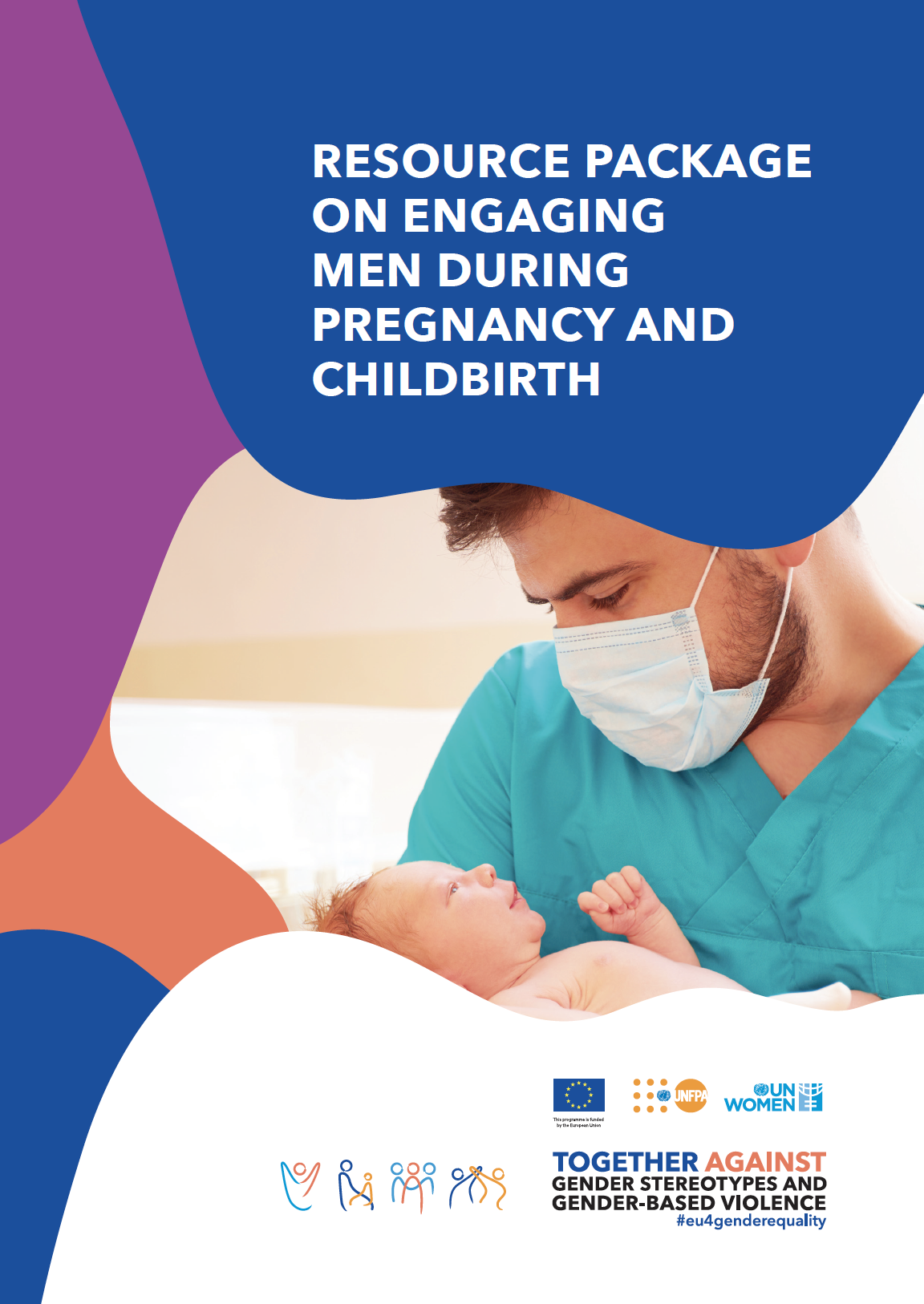
Resource Package on Engaging Men During Pregnancy and Childbirth
The health sector is an important entry point to promote the early involvement of fathers in caregiving. However, maternal and child health providers often primarily communicate with mothers and children, and do not often engage men as supportive partners to women or as caregivers themselves. This resource package was created for use by healthcare professionals to help them engage with men during pregnancy and childbirth and to promote active fatherhood. Divided into thematic areas, the resources provided are intended to help health providers better engage with fathers and create an atmosphere in the clinic setting that welcomes men to prenatal health visits and provides a space for them to critically reflect on and discuss norms that discourage them from being involved in fatherhood. It also provides tools for health practitioners to evaluate their facility’s policies and procedures, and success in raising overall awareness around the importance of engaging men in maternal and child health. The Resource Package on Engaging Men During Pregnancy and Childbirth was developed in the framework of the “EU 4 Gender Equality: Together against gender stereotypes and gender-based violence” programme, funded by the European Union, implemented jointly by UN Women and UNFPA in Armenia, Azerbaijan, Belarus, Georgia, Moldova, and Ukraine.
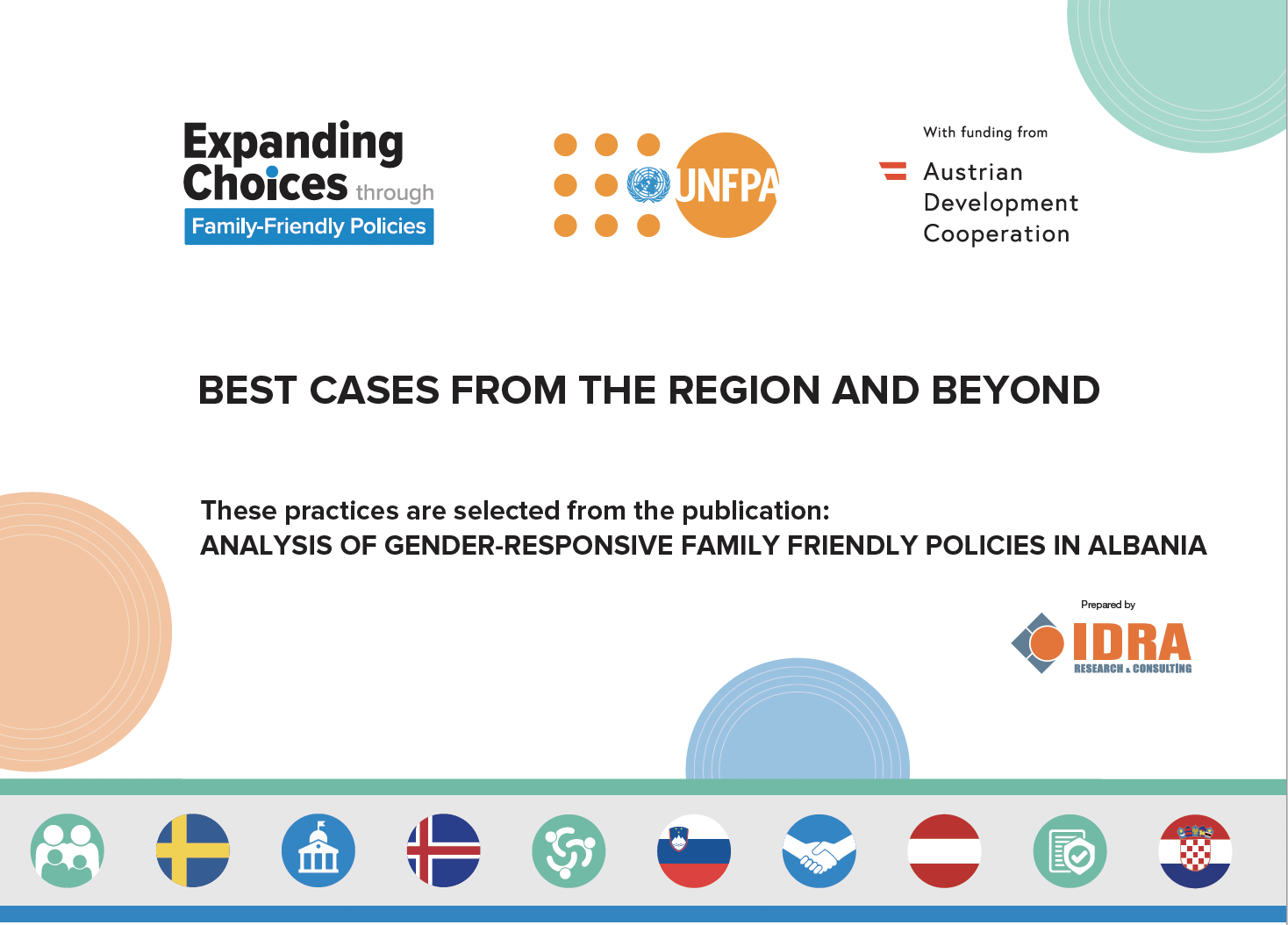
Factsheet: Best practices of gender-responsive family friendly policies in Europe
The factsheet provides good examples and best practices from european countries on establishing national gender-responsive family friendly policies that expand choices for women to fulfill their career and family and fertility aspirations.
These findings come from the "Analysis of Gender Responsive Family Friendly Policies in Albania" done as part of the regional project “Expanding Choices: Gender Responsive Family Policies for the Private Sector in the Western Balkans and Moldova” implemented by UNFPA and supported by the Austrian Development Cooperation. The analysis provides an overview of the current legal, economic and social context for gender responsive family friendly policies in Albania. It also identifies best practices from other countries in the region and provide recommendations that will help to create an enabling environment and expanding choices for women to fulfill their career and family and fertility aspirations.
The “Expanding Choices: Gender Responsive Family Policies for the Private Sector in the Western Balkans and Moldova” regional project, implemented by UNFPA and supported by the Austrian Development Cooperation, aims to expand choices for women so that they can fulfill their career, family and fertility aspirations. The project works on two specific outcomes: ensuring that women, men and children benefit from gender-responsive family policies and initiatives that are offered by private sector companies and ensuring that women, men, and children benefit from national gender-responsive family policies that are promoted by governments.
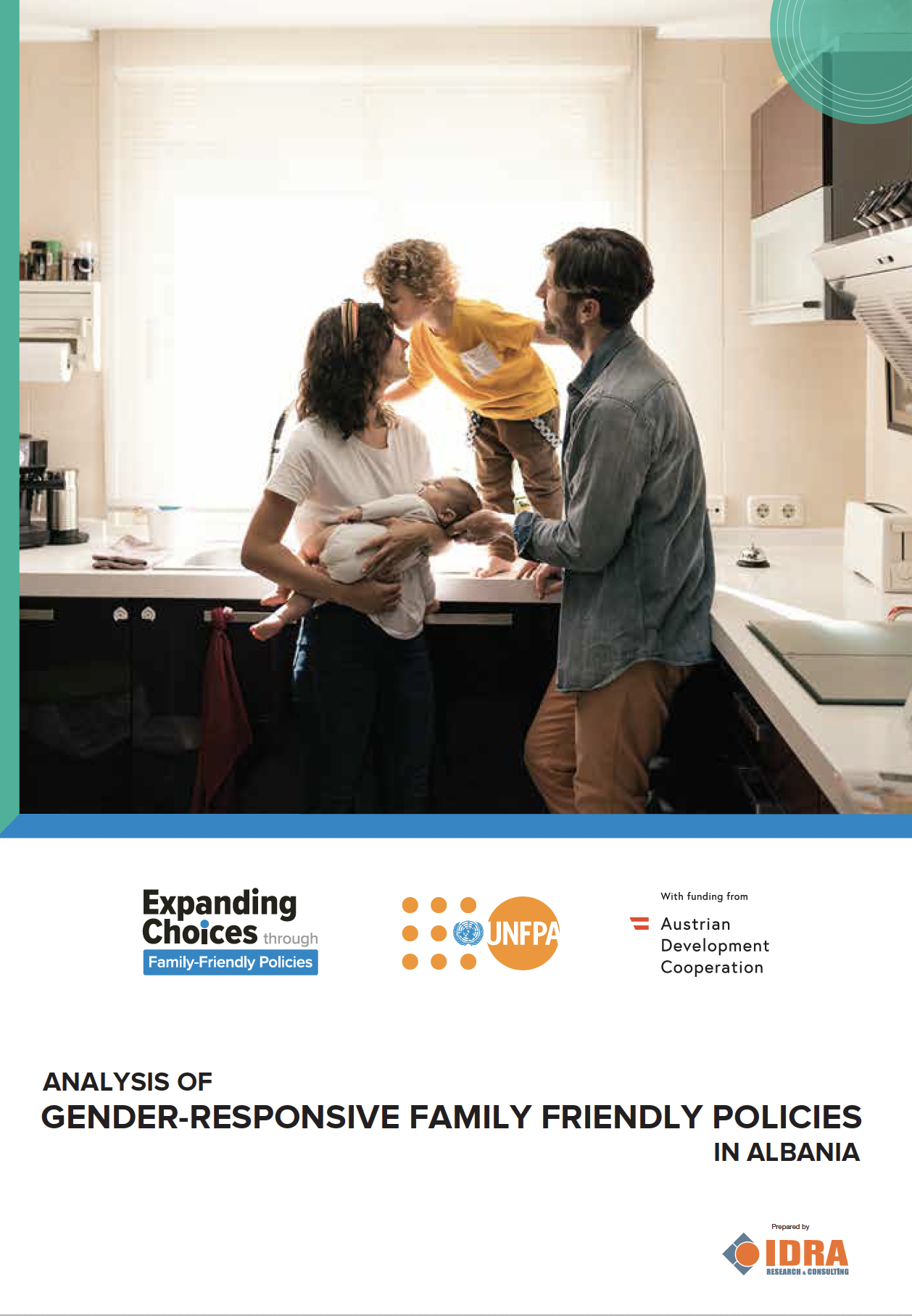
Factsheet: Current family-friendly policies and provisions in Albania
The factsheet provides an overview of the current legal provisions and national policies that exist in Albania to support parents and families.
These findings come from the "Analysis of Gender Responsive Family Friendly Policies in Albania" done as part of the regional project “Expanding Choices: Gender Responsive Family Policies for the Private Sector in the Western Balkans and Moldova” implemented by UNFPA and supported by the Austrian Development Cooperation. The analysis provides an overview of the current legal, economic and social context for gender responsive family friendly policies in Albania. It also identifies best practices from other countries in the region and provide recommendations that will help to create an enabling environment and expanding choices for women to fulfill their career and family and fertility aspirations.
The “Expanding Choices: Gender Responsive Family Policies for the Private Sector in the Western Balkans and Moldova” regional project, implemented by UNFPA and supported by the Austrian Development Cooperation, aims to expand choices for women so that they can fulfill their career, family and fertility aspirations. The project works on two specific outcomes: ensuring that women, men and children benefit from gender-responsive family policies and initiatives that are offered by private sector companies and ensuring that women, men, and children benefit from national gender-responsive family policies that are promoted by governments.
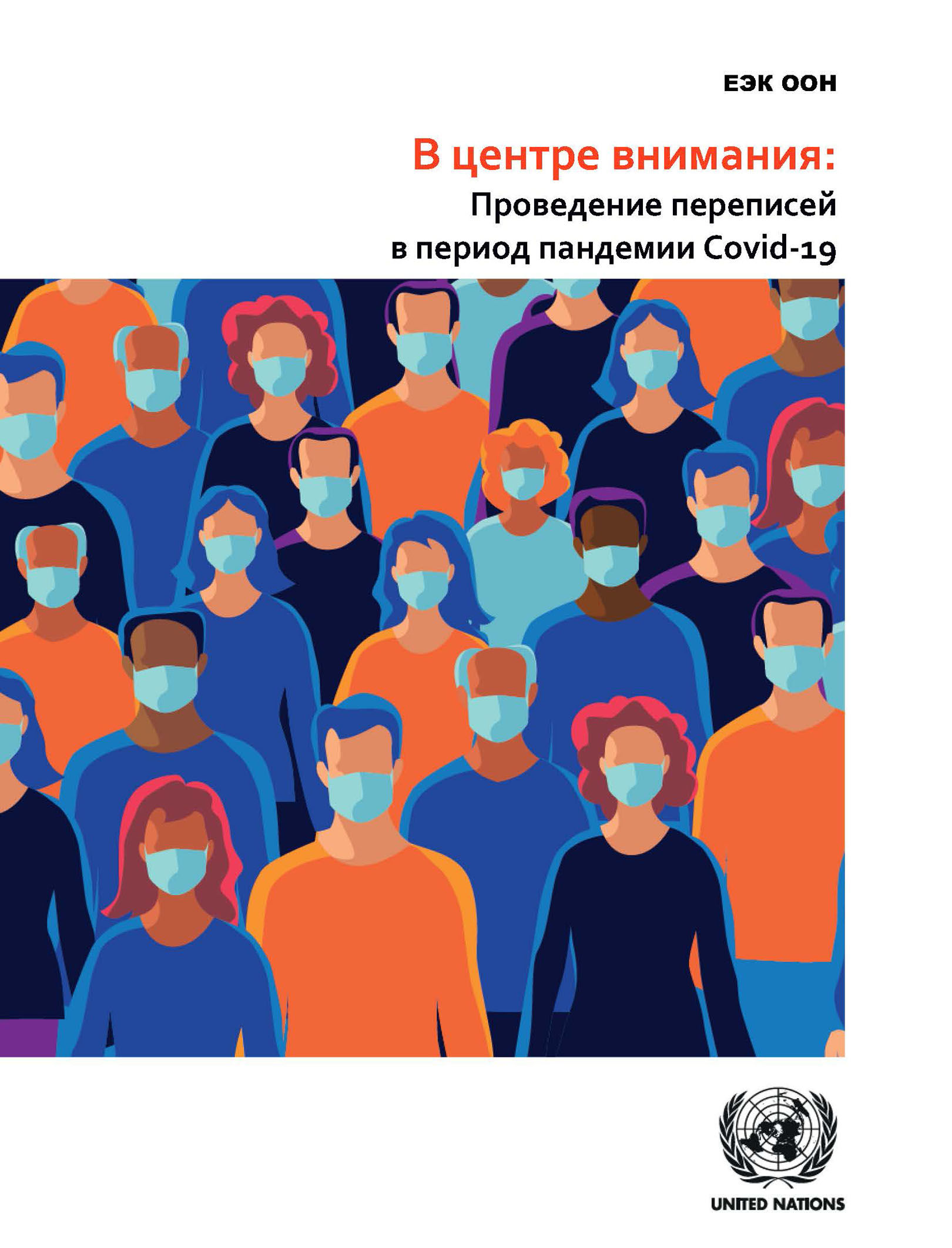
Keeping Count
A publication that looks at the impacts of COVID-19 on all aspects of censuses, from data collection to dissemination, based on reports from countries in the UNECE region. Available in both English and Russian.
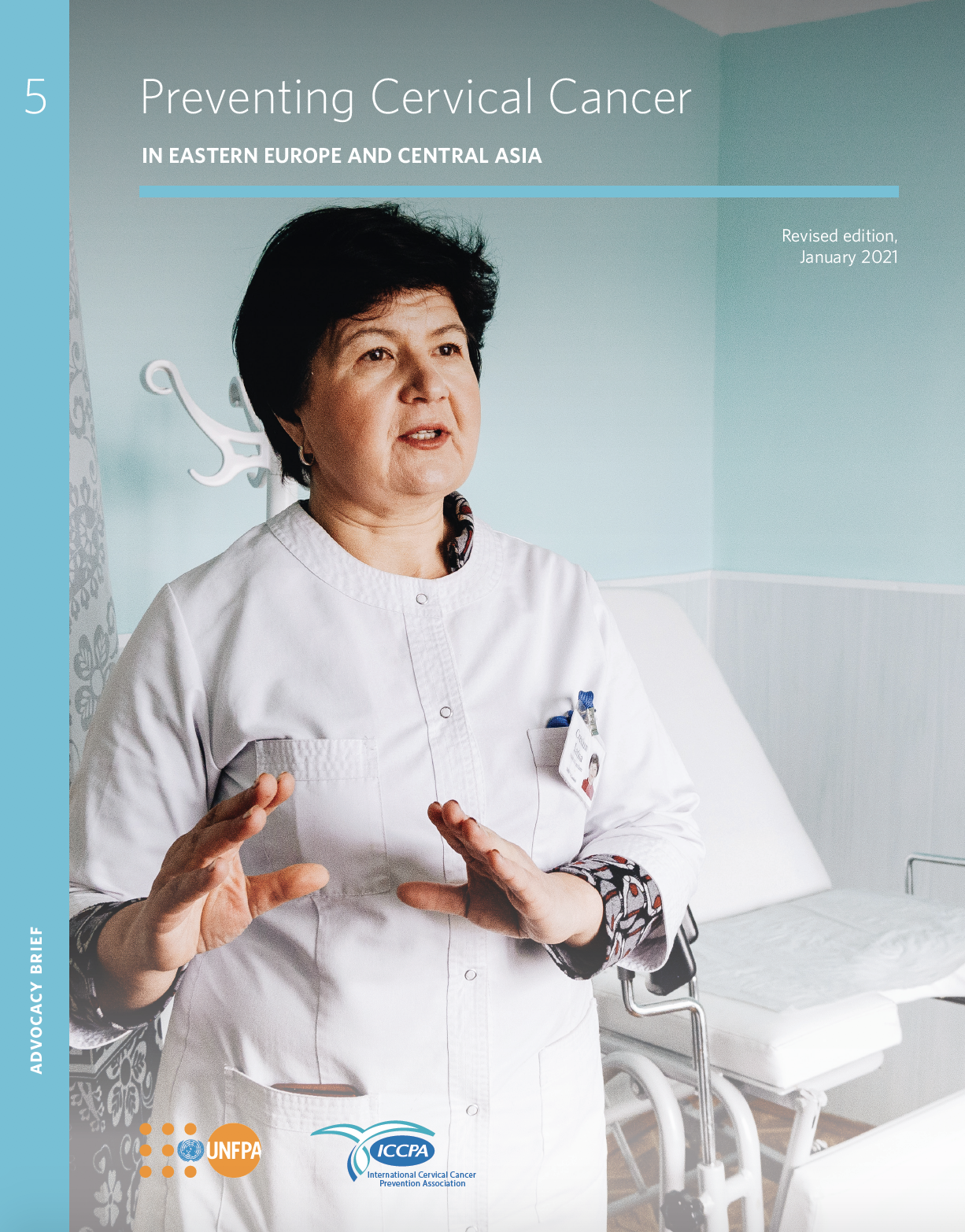
Preventing Cervical Cancer in Eastern Europe & Central Asia
Each year, more than 570,000 new cases of cervical cancer and 311,000 deaths from the disease occur globally; these numbers are predicted to increase to more than 700,000 new cases and 400,000 deaths per year by 2030. The vast majority of these new cases and deaths occur among disadvantaged women living in low-, lower-middle- and upper-middle-income countries, which generally lack the effective cervical cancer prevention programmes – namely, HPV vaccination and cervical screening – that are common in high-income countries. This brief explores the numbers in the UNFPA Eastern Europe and Central Asia region.